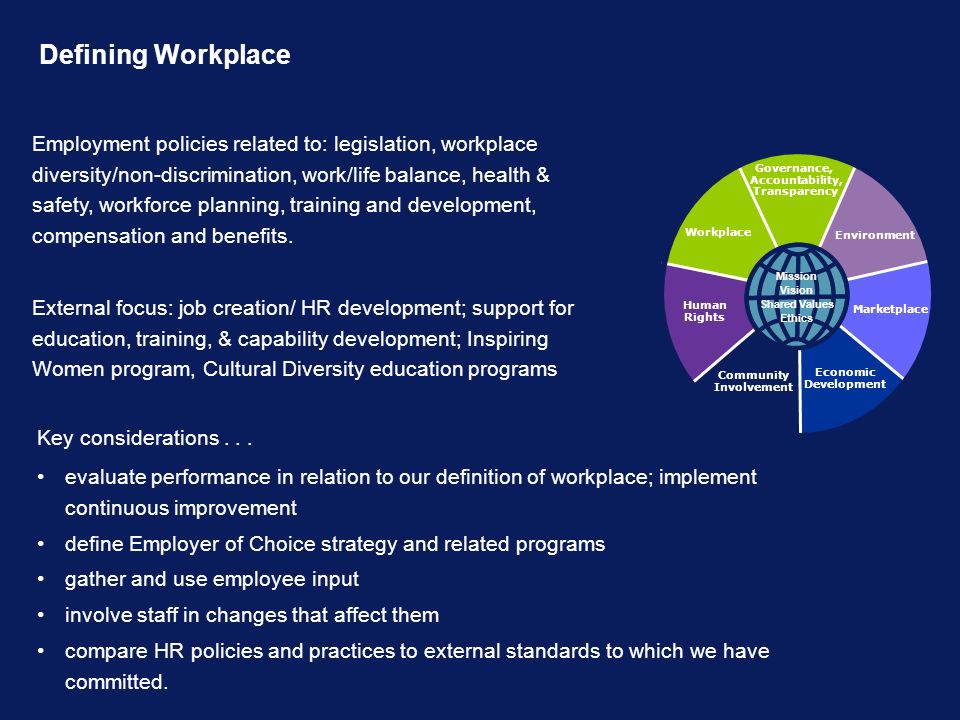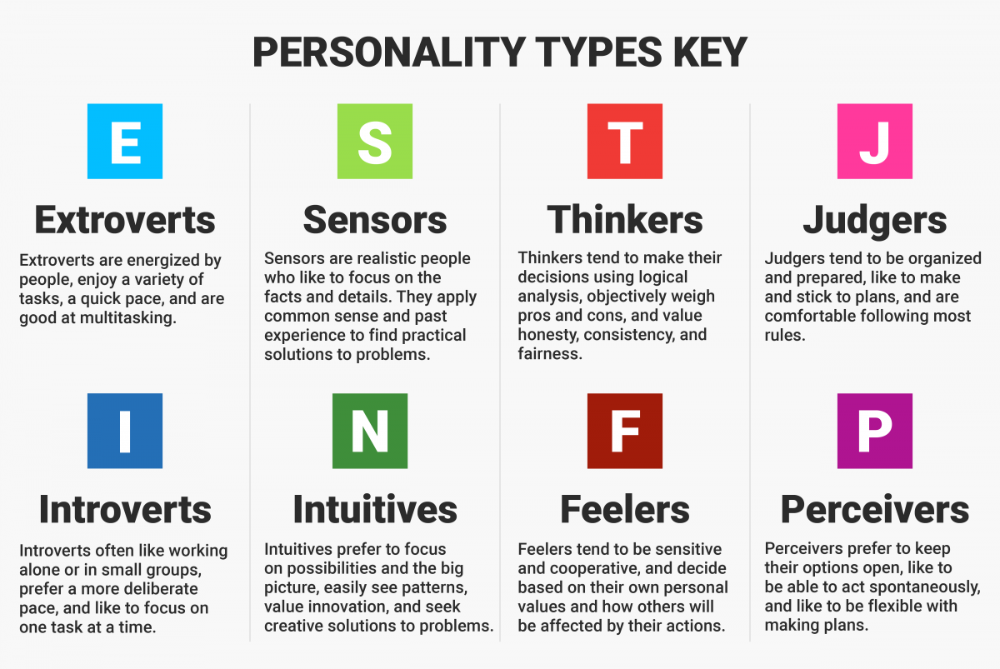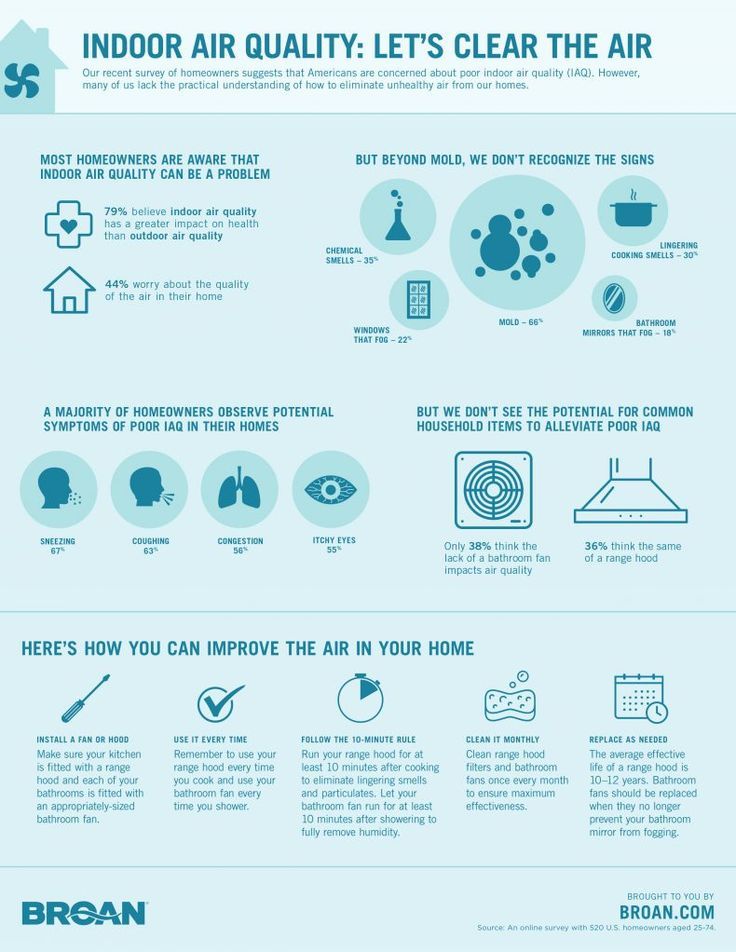Boundaries in the workplace quiz
Quiz to assess your professional boundaries
Managing the boundaries between you and your clients is a difficult juggling act. This self assessment tool aims to help you think about yourself and the professional boundaries that underpin your work. Choose the answers that are closest to how you think you would respond in real life, then check the scores and see how tight or loose your professional boundaries are
Q1 You are walking down the street with your partner and see a client you are currently working with walking towards you.
Do you:
a) Ignore them?
b) Make eye contact and see what they want to do?
c) Nod a brief hello to them?
d) Stop and chat with them?
e) Stop them and introduce your partner?
Q2 Your work mobile phone is broken and one of your clients needs to be able to contact you about the outcome of a custody case on a day that you are working out of the office.
Do you:
a) Give them your personal number but tell them it is a one-off and not to use it again.
b) Give them your personal phone number but tell them it is a new work number.
c) Tell them to call the office and leave a message.
d) Say your phone is broken and blame lack of resources.
Q3 One of your clients notices you are reading a book by their favourite author. You have just finished the book and can tell they would love to read it.
Do you:
a) Give them the book?
b) Hurriedly put the book away?
c) Discuss the ideas and themes of the book with them?
d) Suggest they join the local library?
e) Offer to lend them the book?
Q4 A client asks if you have a partner and children.
Do you:
a) Give a totally honest answer?
b) Tell them it’s none of their business?
c) Acknowledge your situation without giving too much information away?
d) Get out your family photos?
e) Have a moan about your partner/lack of partner?
Q5 A client confides in you that they smoke cannabis to help them deal with their issues. They are not a chronic user, it does not appear to be doing them any harm, and they feel it helps them relax.
They are not a chronic user, it does not appear to be doing them any harm, and they feel it helps them relax.
Do you:
a) Suggest that they keep an eye on any side-effects on their mental or physical health?
b) Warn them strongly about the dangers of cannabis?
c) Suggest that they attend a drugs rehabilitation program?
d) Ask further questions about their use?
e) Say that it seems that cannabis is the least of their problems?
f) Say that many people do self-medicate with cannabis and, as long as they don’t smoke too much, they should be fine?
Q6A client you have been working with stops engaging with you and rejects your attempts to support them.
How do you feel?
a) Sad.
b) Annoyed.
c) Disappointed.
d) Angry.
e) Not bothered.
Q7 A client tells you that you really “get” them, that no-one else understands them, and that they think you are a wonderful person.
Do you:
a) Thank them and say that they are a special person too?
b) Act pleased but modest?
c) Explain that you are just doing your job?
d) Tell them to stop being soft?
e) Give them a hug?
Q8 A client gets engaged and promises to invite you to their wedding, saying they would really like you to be there after everything you have been through together.
Do you:
a) Say you will start looking for an outfit.
b) Tell them that you don’t think it is appropriate for you to go.
c) Tell them you would love to go but professional boundaries mean that you can’t.
d) Be vague, but intending not to go.
Q9 You are working with an elderly client who is unable to leave the house. At the end of a home visit, they ask you to pop to the shops for them because they have no food in the house. It is outside your job description and your hours of work.
Do you:
a) Take the money offered and go to the shops for them “just this once”?
b) Say you are unable to go for them?
c) Offer to do the shopping on a regular basis for them?
d) Ring your organisation and get clearance to do the shopping?
e) Don’t do the shopping this time but arrange adequate support for the future?
Q10 You are working with a client who flirts with you in one-to-one sessions. You believe they are becoming sexually attracted to you.
You believe they are becoming sexually attracted to you.
Do you:
a) Speak to your manager about the situation?
b) Play along with them so you don’t hurt their feelings?
c) Tell them that this is a professional relationship and that they should not be so over-friendly?
d) Get them transferred to another worker?
e) Stop booking one-to-one sessions with them?
f) Book a home visit to discuss the situation?
Q11 One of your clients used to be a financial adviser. While chatting, they tell you about some stocks and shares you should buy now to make lots of money. You currently have some money you are looking to invest.
Do you:
a) Tell them that you are here to advise them, not the other way round?
b) Tell them you don’t invest in the stock market, but follow their advice secretly?
c) Be polite but disinterested and ignore the advice?
d) Ask them for more details so you can check it out later?
Q12 A new client spontaneously gives you a hug at the end of a particularly positive session.
Do you:
a) Hug them back and tell them what a positive session it was?
b) Let them hug you but don’t really engage?
c) Avoid the hug and tell them that it is not appropriate?
d) Accept the hug and tell them it is not appropriate?
e) Tell them to never touch you?
Q13 You turn up for a home visit and your client answers the door wrapped in a towel.
Do you:
a) Refuse to enter the house or to start the session?
b) Tell them to put some clothes on and wait outside while they do?
c) Laugh it off and go in anyway?
d) Suggest they need to put some clothes on before starting the session?
Q14 You turn up to meet your friends for a drink in the pub. You see one of your current clients there with some of her friends and she looks slightly drunk.
Do you:
a) Ignore your client all night?
b) Speak to your client and suggest they leave the pub?
c) Ask your friends to leave with you to another pub?
d) Have a word with your client and suggest that you ignore each other?
e) Buy your client a drink?
Q15 One of your clients brings you an expensive bottle of perfume/aftershave as a gift towards the end of your time working with them.
Do you:
a) Accept the gift with thanks?
b) Refuse the gift as inappropriate?
c) Accept the gift but say you will have to share it with the team?
d) Accept the gift, document it and report it to your manager?
Q16 While chatting with a client, they mention your favourite band/musician/composer and talk about how much they love them
Do you:
a) Listen and ask them questions?
b) Say how much you like the artiste?
c) Start chatting in depth about the music/lyrics?
d) Talk about the time you saw them play live?
e) Change the topic of conversation?
Q17 You are chatting with a group of clients when one of them tells a racist joke. All the other clients laugh and, although tasteless, the joke makes you want to giggle.
Do you
a) Smile to yourself but walk away?
b) Keep a straight face and say nothing?
c) Challenge the clients directly about the implicit racism?
d) Say that you find the joke offensive?
e) Remind them of the rules about racist language?
f) Laugh (but not too loud)?
What did you think of the quiz? Are you surprised by your score? Have your say on CareSpace.
This article is published in the 10 September 2009 edition of Community Care magazine under the headline How tight (or loose) are your professional boundaries?
7 Tips for Setting Work Boundaries in Your 24/7 Schedule|Psych Central
You need to create some space: between you and the j-o-b, or between yourself and some colleagues.
Saying “yes” at work to anything and everything can be tempting. By making yourself available, taking on extra responsibilities, or staying late, you can often set yourself apart.
Being too accommodating, however, might also set you up for undue stress and burnout.
According to a 2019 report that Udemy published, boundaries at work are being crossed regularly. Approximately 59% of managers feel pressed to work through lunch breaks, and 66% of employees have experienced or witnessed bullying.
A 2016 survey found 43% of working adults felt their jobs negatively affected their stress levels.
Chronic stress at work can affect both physical and mental wellness.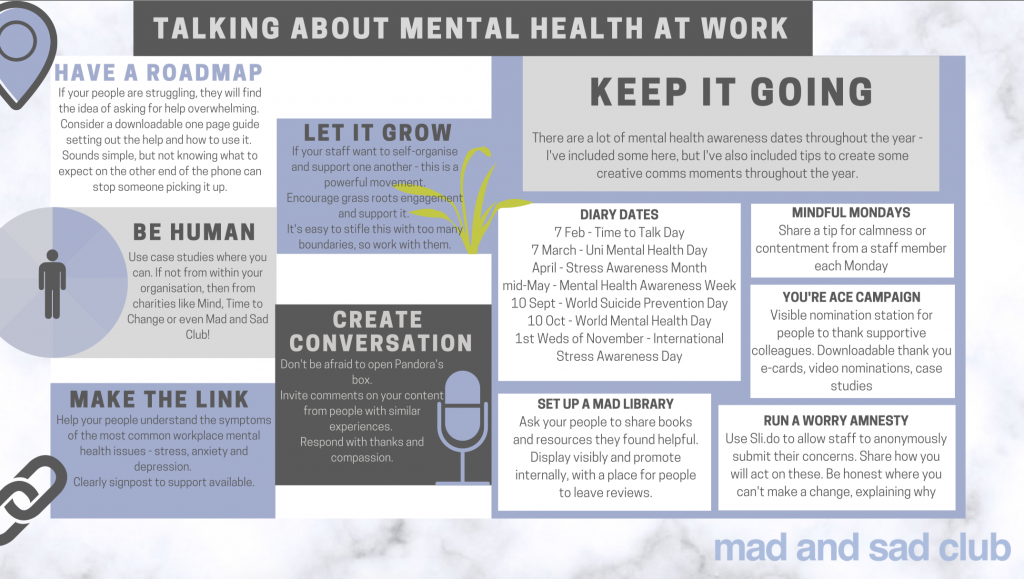 You may find yourself dealing with symptoms of anxiety or depression. Learning how to set boundaries at work might take some practice, but establishing them early may help you avoid uncomfortable situations down the road.
You may find yourself dealing with symptoms of anxiety or depression. Learning how to set boundaries at work might take some practice, but establishing them early may help you avoid uncomfortable situations down the road.
Having a good work ethic doesn’t mean you have to be perfect all the time. It’s fine to say no to that last batch of overtime and to want to have the weekend off.
Your personal value as a human being doesn’t rest on your ability to perform at work. By taking the pressure off yourself to perform, you can make setting boundaries with coworkers easier.
Here are some further resources to bookmark for giving yourself a professional break:
- Daily meditations on self-compassion can help guide you toward being more understanding and patient with yourself.
- Self-compassion can also be a helpful tool to lessen stress.
- A mental help professional can provide you with more in-depth tools and resources to help you cope with depression while at work.

- Try to actively reassure yourself when going back into the office while coming out of the pandemic.
Your reputation is made up of more than people’s opinions of whether you’re a “good” or “bad” worker. It’s the sum set of actions and behaviors people attribute both to you, plus their interactions with you.
As former law professor, ethics lecturer, and founder of CHARACTER COUNTS! Michael Josephson famously taught: “What you allow, you encourage.” How you engage with others and what boundaries you establish with colleagues teach them what they can and can’t say and do to you.
Liz Ryan is the founder of The Human Workplace and a former Forbes contributor. She addresses how to politely decline or redirect with your boss or coworker, when the answer to a request isn’t a yes.
Here’s more guidance on how to say no without being rude, plus some helpful prompts to reply and maintain boundaries.
Expecting people to abide by your workplace boundaries may be a challenge if you aren’t comfortable with direct communication.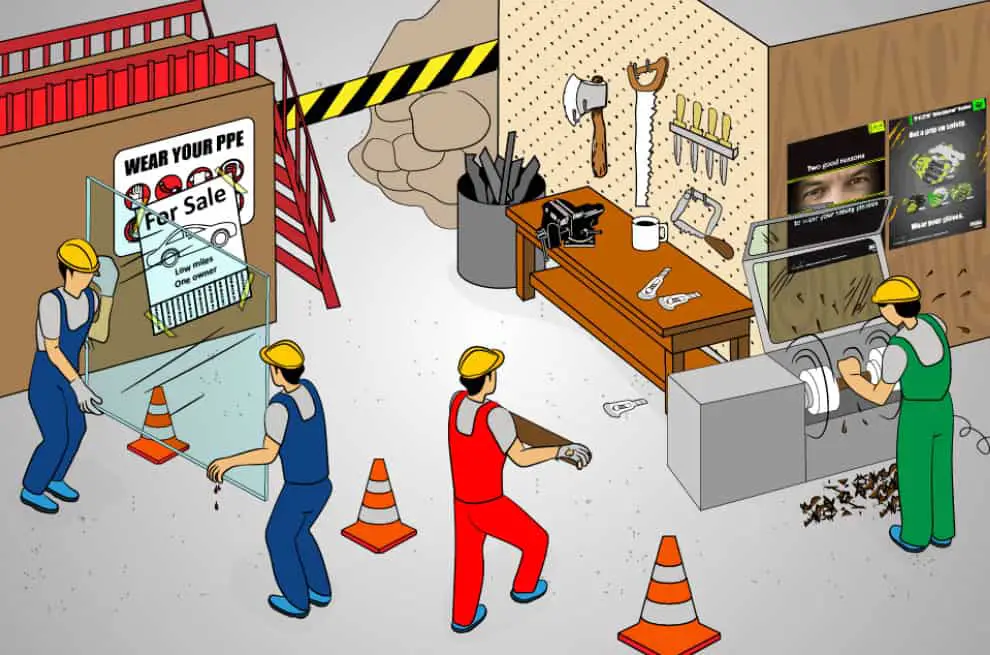 Communicating clearly not only means being direct about where your lines are drawn, but it can also mean working through layers of conversation to fully understand something.
Communicating clearly not only means being direct about where your lines are drawn, but it can also mean working through layers of conversation to fully understand something.
Clarity can mean avoiding assumptions; if you’re uncertain; you may want to ask questions.
Pro communication tip
In his book “The Four Agreements,” Don Miguel Ruiz suggests asking this simple question when communicating to avoid taking things personally or making assumptions:
“What do you mean by that?”
It allows the other person to clarify or perhaps rethink the delivery of a statement.
It can also mean making sure when you say “yes,” you mean yes. Agreeing to something your instincts say “no” to can send a signal to other parties involved you’re OK with something when you really aren’t.
Saying yes only when you mean yes can also help build your integrity. Coworkers learn when you say something, they can trust your words to accurately represent your thoughts.
You may want to bookmark these resources on communication:
- tips on fortifying the delivery (verbal and nonverbal cues) of your communication
- cheat sheet for assertive communication (without being passive-aggressive)
Responding with specific feedback in the moment can help set the stage for how you want your future interactions to go.
This can help build professional trust between yourself and coworkers. You’re letting them know you value their time and effort, and validating what they’ve brought to the table.
“When you answer communication in a timely manner, you demonstrate confidence in your message, as well as respect for the recipient,” says Linda Esposito, licensed clinical social worker, psychotherapist, and writer in Pasadena, California.
Not only is timely communication important, but choice communication is important as well. As much as folks relish watercooler talk, staying clear of indulging in gossip will help ensure your boundaries protect you and others from blurring lines with personal business.
Not participating in gossip, and only bringing company concerns up through the chain of command, is one small and continual step toward establishing a precedent for what teammates can come to you with.
Sharing concerns up the chain of command can also help prevent unintentional undermining of authority.
Workplace bullying is another toxic aspect of lack of boundaries that can be addressed by direct and calm-assertive communication.
“Your home is your sanctuary,” says Esposito. “While it can be difficult to ʽleave work at work’ if doing business from a home office, it’s essential for work/life balance.”
One way to do this, Esposito suggests, is by “tidying up your desk and stowing paperwork after your shift [to] signify it’s time to decompress and enjoy the rest of your evening.”
If you’re finding you’re losing yourself in your work, here’s some advice on reconnecting with yourself outside of an all-consuming job.
“ʽThat doesn’t work for me’ is a short message that’s long on limit-setting,” explains Esposito.
Saying “that doesn’t work for me” allows you to address a potential breach of your boundaries and offers room for an alternative option if there is one.
Having a plan for boundary crossing can also help prevent you from getting caught off guard. An immediate response lets your coworker know a line has been crossed but buys you some time if you need to think about the situation.
An immediate response lets your coworker know a line has been crossed but buys you some time if you need to think about the situation.
Want some help planning ahead for work boundary breaches?
Many places of work also have a preferred system for addressing conflict. If something inappropriate occurs, knowing your company’s policy can help you take action sooner rather than later.
“Boundaries are all about respect — for yourself and for the other person,” says F. Diane Barth, licensed clinical social worker and psychotherapist in New York. “When a colleague says something inappropriate that you want to address, go for it.
“But keep in mind that anger, sarcasm, put-downs, and criticisms will not accomplish much, except to get you both worked up. Boundaries really don’t work if they’re used to punish another person. If you make it clear that you respect the other person, it’s much easier to communicate that you expect them to respect you as well,” Barth adds.
Addressing concerns at the moment may also help you “call people in,” a conversational method that shines a light on behavior without direct accusation.
Calling people in focuses on finding mutual understanding instead of confrontation.
Setting healthy boundaries at work isn’t just about taking a stand on hours, responsibilities, or interactions. Without limits on what you’re willing to take on, you can find yourself miserable at work and feeling overwhelmed.
If you’re unsure of how to set boundaries, or feel too overwhelmed, speaking with a mental healthcare professional may help.
You may also want to talk with a human resources representative at your company. They have access to supportive resources as well.
Contacting agencies skilled in addressing workplace issues can also provide support. These include:
- Occupational Safety and Health Administration (OSHA)
- Equal Employment Opportunity Commission
- Department of Labor
- Center for Workplace Mental Health
Setting boundaries at work doesn’t mean you have an attitude, you’re looking to work less than your fair share, or are less ambitious than your coworkers. It’s about self-care for mental wellness, mutual respect, and clear-cut communications.
It’s about self-care for mental wellness, mutual respect, and clear-cut communications.
Boundaries can help prevent workplace burnout and might help you be more productive in the long run.
Learning how to set boundaries, however, and being comfortable doing so, isn’t always easy. You may be worried you won’t get a promotion, or you might associate your self-worth with job accomplishments.
Sometimes it’s just uncomfortable to say no to people.
The good news is, you can learn to set boundaries without being confrontational, and you can reinforce those boundaries subtly and mindfully.
90,000 Personal boundaries in the workplace. We violate, we defend, we read between the lines and "get out of the water"I am Natalie Rostova, business dev at Pridis, a Dutch IT company, where I have been working remotely from Kyiv for almost three years. And also, concurrently, I am a speaker of the educational project "My Own in the West".
Since I managed to get a position in the Netherlands and co-founded a startup in a Spanish incubator two years later, I delved into the topic of intercultural communication and launched my educational project to help other professionals achieve results in Western companies. I conduct corporate trainings, organize online courses, shoot vlogs on YouTube, write articles for my beloved DOU and sleep little. I blog on LinkedIn, where I regularly post about the peculiarities of Western business culture.
I conduct corporate trainings, organize online courses, shoot vlogs on YouTube, write articles for my beloved DOU and sleep little. I blog on LinkedIn, where I regularly post about the peculiarities of Western business culture.
This article is simple, not a hit. However, it promises to be useful to absolutely every individual who, in one way or another, experienced discomfort in the work team and would like to receive effective tools to eliminate it.
The article, advice and conclusions in it are based on personal experience. Applying and believing is optional. Always do as you see fit.
Illustration by Alina Samolyuk
As a child, my personal boundaries were pushed through from head to toe - whoever wanted, how they wanted, and when they wanted. I was often addressed not by name, but as funnier. And they were in the mood, their mood. Yes, they were children, and so it was with everyone. I did exactly the same. Only with those who are younger, and did not have the slightest idea that it was possible in a different way.
We grew up, graduated from universities in big cities, got jobs in international companies, started a business, and we know almost nothing about personal boundaries.
I recently encountered a situation where a person with whom we have a friendship + a joint project violated my personal boundaries. And when I most delicately asked to stop doing it, he refused, arguing that he was so uncomfortable. The person is from the CIS.
After this incident, I decided to delve into the topic, collect additional material and tell how things are with personal boundaries in the workplace in a Western IT company. What situations can a mere mortal IT specialist and his manager face. What lines should definitely not be crossed, what to do when crossed, and most importantly, how to protect personal boundaries. Because this is where it all starts.
How to determine the boundaries of personality
The concept of "personal borders" in the territory of the post-Soviet space appeared relatively recently. Most of the inhabitants of our countries are not aware of either the meaning of this concept or its content.
Most of the inhabitants of our countries are not aware of either the meaning of this concept or its content.
There is a thin layer in the form of intelligentsia, where this is a self-evident rule of interaction between individuals . Thin, almost transparent layer. In the West, this layer is called "aristocracy". I still dream of closing up for three months in some picturesque abbey in England with arrogant governesses, so that every morning begins with table etiquette and ends with high-flown conversations in the evening by the fireplace with subtle hints about my fakups.
But let's get back to IT, to the workplace of a simple developer, and start by defining what we are here for today.
Personal boundaries are the thin line that separates what we allow and do not allow other people to say and do about ourselves.
Perhaps you have heard complaints about the closeness of Europeans? (Western Europe - here and further.) They say that it is impossible to build truly deep relations with them and talk heart to heart. Or maybe you yourself have come to similar conclusions.
Or maybe you yourself have come to similar conclusions.
I think so: what we call "talk heart to heart", share your real opinion, give advice that no one even thought of asking, do a psychological analysis of the personality (free of charge), turn your family relationships inside out, tell the person, that he has gained weight or lost weight, aged or rejuvenated, is a violation of personal boundaries.
It's just that our borders are wider than those of Europeans. This is due to cultural characteristics as well.
What can be considered an invasion of someone else's space
Last year, my co-founders and I launched a startup in a Spanish incubator in Kyiv. There were a lot of our local guys in the batch. I was constantly addressed by the name Natasha, I corrected: "To me Natalie or Natalya." But many continued to say: "Natasha." I politely explained, served with humor, answered impolitely and even used profanity. Do you think it helped? No. This is part of our culture. It is not customary for us to take into account the desires of another person.
It is not customary for us to take into account the desires of another person.
What do they call me in the West? The way I introduce myself. And if a person is not sure, he will ask again. And if he makes a mistake and I delicately correct him, he won't do it again. And again, the reason is cultural. Respect for personal boundaries is quite palpable.
Recently, on my YouTube channel, I published a recording of a webinar about self-presentation in the West, its role and why everyone who works with Europeans needs it. You can also watch a video about a business protocol in an appeal to a client, it tells in more detail what name to use, how not to use it, and the consequences of ignoring this protocol.
When working with Western clients, be attentive to details. Watch after what your words or actions change their facial expression, show slight dissatisfaction, indignation, and perhaps turn on the ignoring mode.
This also includes familiarity. In Western business culture, it is customary to build friendly professional relationships. Especially in B2B. Go to lunch and business dinner together. Some colleagues in the Netherlands follow a long-standing tradition of vacationing with the same company in the Alps every winter. At the same time, they remain colleagues with a noticeable distance in communication.
Especially in B2B. Go to lunch and business dinner together. Some colleagues in the Netherlands follow a long-standing tradition of vacationing with the same company in the Alps every winter. At the same time, they remain colleagues with a noticeable distance in communication.
In our culture it is customary to mix friendship and work, so we violate personal boundaries more than European peoples. This is a completely natural consequence. It’s just that when you interact with Western stakeholders, you should take into account what is different for them and switch the communication mode.
How I violated the personal boundaries of European colleagues
At the beginning of my current position in the Netherlands, I often violated the personal boundaries of my colleagues. Could make an inappropriate comment about the style of clothing or the choice of food in a restaurant.
Once at a conference, when we were having dinner as a group, a colleague who was sitting next to us accidentally dropped his fork and reached for it. And it was a luxury hotel with appropriate service. I turned to him with a remark, saying that it is not customary to lift cutlery in restaurants from the floor. The waiter will come and do everything himself. And this was heard by almost the entire table, about 10 people. Of course, they kept silent and pretended that nothing had happened. There should be five facepalm emojis here. Frankly, I don’t know how my colleagues withstood me for the first year while I adapted. Holy people (this is a joke, if that).
And it was a luxury hotel with appropriate service. I turned to him with a remark, saying that it is not customary to lift cutlery in restaurants from the floor. The waiter will come and do everything himself. And this was heard by almost the entire table, about 10 people. Of course, they kept silent and pretended that nothing had happened. There should be five facepalm emojis here. Frankly, I don’t know how my colleagues withstood me for the first year while I adapted. Holy people (this is a joke, if that).
The West is not the CIS. This is a more mature audience, and sometimes Europeans associate us with infantile personalities. I'm sure they thought even worse of me.
What is considered a violation of personal boundaries in the workplace in the West:
- Ask about family, finances, health status, illnesses. Just to ask. You can be interested in common phrases. If a colleague is back in the office after a cold, it's okay to ask, "How are you feeling today?"
- Ask for events.
 If they want to invite you, you will know about it thanks to the presence of an invitation. An example of what not to do: “Are you going to the pub on Friday? Who else is coming? Cool, I've wanted to go there for a long time."
If they want to invite you, you will know about it thanks to the presence of an invitation. An example of what not to do: “Are you going to the pub on Friday? Who else is coming? Cool, I've wanted to go there for a long time." - Share personal details. It is enough for colleagues to know that you are married and that your children go to elementary school.
- Distribute free advice. If you have information that will definitely help a colleague, ask in tête-à-tête mode if you can give advice. In English, it will sound like this: “I’ve been in the ....situation. Can I give you an advice? If the answer is no, sincerely wish good luck, without imposing your opinion.
- Do a psychological analysis of a person. When a colleague's deal fell through and he told about it, do not rush to say that he needs to accept his father, because the father is money, etc. Such comments are allowed to be made by psychologists who are paid to do so. You can just wish good luck and say that next time everything will work out for sure.

Is it worth it to implement European principles in Ukraine
I will answer this question as follows: if I grew up in an environment where these principles are respected and applied in all spheres of life, starting with the family and ending with the communication of casual passers-by, then much earlier, much easier and much more effectively I would be able to realize myself in the West.
And if our generation does not "strain" for its own sake, then our children will strain. Because Western business culture is global and it will not disappear anywhere. Sooner or later, someone will have to overcome this cultural barrier.
The principle of "who is first, that gets slippers" also works here. You will quickly understand what's what, significantly get ahead of your neighbor.
How to defend personal boundaries
You may be told indirectly or directly about the violation of boundaries, and more often complain to HR. In the West, it is customary to resolve disputes through a third party.
This is usually done according to the scheme:
- The fact of violation of personal boundaries is pronounced.
- Feelings are described.
- A request is made to stop the violation.
- Equivalent offered.
Example. Kolya refers to a colleague named Charlie, although his full name is Charles. And Charles doesn't like it very much.
Addressing Kolya, Charles will say:
"(1) Kolya, when you call me 'Charlie',
(2) I experience some discomfort.
(3) Could you please stop calling me Charlie,
(4) and use my full name - Charles."
When personal boundaries are violated in the West, educated people show understanding, apologize and try to do things differently.
In our culture, they often turn on "argument mode" with explanations for being wrong and even make psychological diagnoses. They completely refuse to stop violating personal boundaries or simply ignore them as if no one has said anything.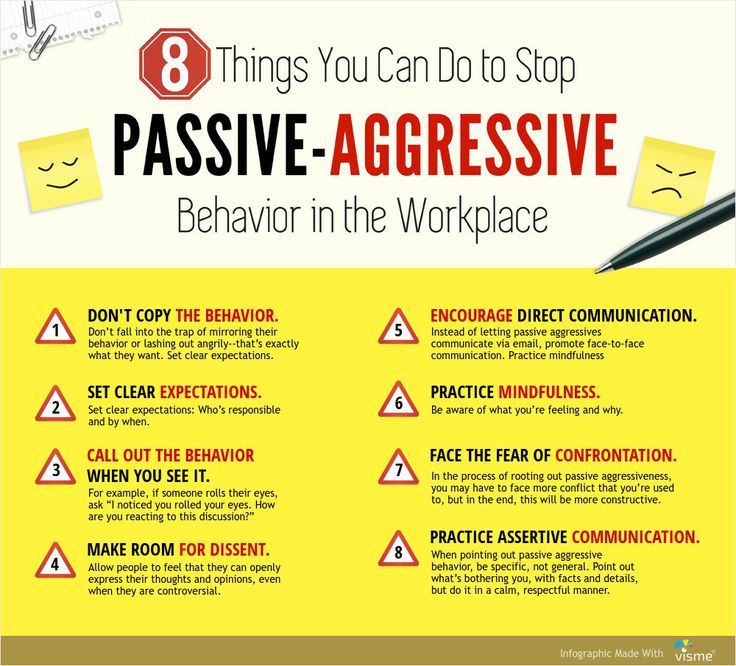
A smart tactic in the international space, if you want to be successful there, will be respect for requests to stop violating personal boundaries. Apologies for the fact that you unknowingly violated them. Application of new agreements.
However, your colleagues may be shy or may not know how to ask you not to do something so as not to offend you. In this case, they will hint. And again my advice is attentiveness. Watch people's reactions to your words and actions. Humor aside, this is the best advice I can give. Because then the person will go to complain to HR or management.
How hints might sound:
- "It's not how we do it usually, but yeah, let's take a look." It translates as: “We have established processes, and they suit us. We are not ready to implement your decision."
- "I'm not sure it's gonna work but let's give it a try." It translates as: "It won't work, we're wasting our time."
- A colleague or partner does not give an answer/feedback to what you agreed on, even though you meet every day.
 You ask again, clarify, but he seems to evade and ignore. It translates: “I don’t want to do what we agreed on, I want you to understand this yourself and leave me alone.”
You ask again, clarify, but he seems to evade and ignore. It translates: “I don’t want to do what we agreed on, I want you to understand this yourself and leave me alone.” - "Great idea, but do you think we should involve Charles?" It translates as: "Charles must be brought up to date, there is no way without him."
- "I'm not sure I'll be able to do it today I have a lot of work with the project. I can try but no promises. Did you ask Jerry if he is available?" It translates as: “I am very busy and I definitely won’t have time to do it. Ask Jerry.
I've taken common workflows as examples so you can insert your stories. This is some kind of "formula".
An example when they are asked to stop violating personal boundaries, as a continuation of the story about Kolya and Charlie. Ideally, Kolya should have replied: “Charles, I’m sorry for crossing your personal limits. Thanks for letting me know. From now on it will be my pleasure to call you Charles" + sincere smile.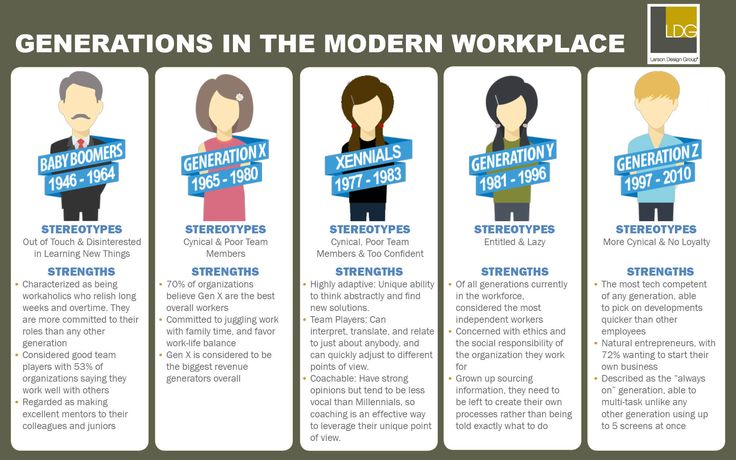
What happens if you violate the personal boundaries of colleagues
We will come across a conversation with HR, and if complaints continue to come in, termination of the contract. By the way, we may not even know about the following complaints. As a rule, people speak once and after a while they are interested in whether we managed to reflect on the situation and how our progress is there. If we ignore requests and it is easy to replace us, they will replace us.
But the main thing I want to convey through this article is let's allow ourselves to respect our own personal boundaries.
After all, we often allow colleagues and loved ones to treat us not in the best way. We find good explanations and even believe in them, we say “okay”, “it’s okay”, but in fact we just tolerate violent treatment. I am not exaggerating. And I sincerely believe that as soon as we stop allowing others to violate our boundaries, we will begin to respect the personal boundaries of others with much more respect.
I'm finishing another longread, but I feel like I've just started.
Guys, it will be interesting to read in the comments below about cases of violation of personal boundaries in your practice and how you dealt with it. Have a great working week, even if today is Friday :)
Everything about Ukrainian IT in Telegram — subscribe to the editorial channel DOU
Topics: soft skills, team, team, culture
How to set personal boundaries in a work team
A personal boundary is a boundary that separates a person's inner world: his thoughts, feelings, views, values from the world of other people.
Personal boundaries create a safe space for the individual and allow one to separate one's own actions, thoughts, and values from those of others. They protect our inner world from extraneous influence and help to achieve emotional maturity in relationships with people. In this article, we will learn how to protect the limits of our own comfort in an area of life where communication is not always environmentally friendly - in a team.
Situations in which it is worth setting personal boundaries
A person has the right to set his own boundaries in situations where communication becomes unsafe for him and causes feelings. To show that you are ready to defend your values, you need to do this firmly enough, but without rudeness and aggression.
It is important to designate unacceptable behavior not from the point of view of the accusation: “you insulted me”, “you asked this question to make fun of me”. It is better to talk about yourself, and not about another person, “this is unpleasant for me”, “this is a painful topic for me”. Make your point clear enough that the other person knows how not to treat you.
By themselves, these situations violate personal boundaries only when they cause you discomfort. It’s normal for someone to write in a chat on the weekend or answer questions from colleagues about intimate life - everyone has their own limits. Other things can be unpleasant for you, for example, when someone takes your things without asking or asks for links to social networks.
Colleagues write after working hours
:00 to 17:00. Clearly state your position in the general conversation and warn that you will not engage in work tasks outside this interval.
For example, at 22:00, colleagues start actively discussing the project in a corporate chat. You are also invited to join, but now you are not dealing with work issues, so calmly turn off notifications and go about your business.
Supervisor asks you to work during holidays or days off
During official holidays, your supervisor may ask you to urgently come to work or complete a task. To prevent such situations from happening, indicate that during your non-working hours you get in touch only in extreme cases. You have the right to refuse and not sacrifice rest for the sake of helping the team, and this will not make you a bad employee.
Remember that circumstances vary. Helping out a colleague in unforeseen circumstances is normal. But breaking down at the first call of the boss is not at all necessary.

For example, your boss asks you to urgently compose a letter and send it to your partners on Sunday when you are going for a walk with your children. You do not plan to work now, so you calmly answer that you will complete the task on Monday - anyway, no one will read the newsletter on the weekend.
Management manipulates their position
The manager may treat you with disdain - manipulate their position to force you to do what you do not want.
For example, threatening to leave you without a bonus or give you a raise if you don't take on more tasks or start working on weekends. You are not obliged to tolerate such behavior of another person, even if he is higher in position than you, and you have the right to express your dissatisfaction.
Or suppose the director asks you to conduct an internship training on the day you speak at a conference. If you do not do this, he will think about your dismissal. You know that you can’t agree, otherwise the next time the request will be even more impudent, so you refuse and gently remind you of the existence of a labor inspectorate. And when this happens again, you yourself write a statement and say goodbye to the manipulator.
And when this happens again, you yourself write a statement and say goodbye to the manipulator.
Colleagues or management go personal
Some of your colleagues may discuss things with you that are not related to work: marriage, raising children, health, and so on. If you feel uncomfortable talking to a person about these topics, politely indicate that you do not want to share the details of your life in a work setting.
For example, a colleague asks you why you deleted all the photos with your ex-partner from social networks. You feel uncomfortable answering this question, so the best thing you can do is ask the other person to mind their own business and end the conversation. You can make a private page on social networks so that colleagues are less interested in your relationship.
Someone on the team hints at friendships or intimate relationships
It is important to stop any attempts at rapprochement by colleagues if you consider romantic or friendly ties in the team to be unacceptable. If you carefully label what you don't want to go outside of work communication, most people will be ok with that.
If you carefully label what you don't want to go outside of work communication, most people will be ok with that.
For example, one colleague often flirts and brings up intimate topics in conversations. If you do not want to discuss such things with him, politely ask the interlocutor not to go beyond the scope of working communication.
Socializing in a team is stressful
In the workplace, a co-worker may make inappropriate jokes, make comments about your appearance, or offer unsolicited advice. If this is repeated regularly, causes stress and unwillingness to return to the team, it is important to stop such behavior in time without reciprocal rudeness, ignoring and passive aggression. This applies not only to those who are equal in position to you, but also to those who are higher. If the leader teases, he must be put in his place in the same way as an ordinary employee.
For example, your boss constantly asks you an ironic question why you look unkempt, “like a hangover. ” The jokes are repeated regularly, and you can no longer laugh it off, so say: “I think that my appearance does not affect the quality of my work in any way. If you feel the same, please don't comment on how I look, I don't like it."
” The jokes are repeated regularly, and you can no longer laugh it off, so say: “I think that my appearance does not affect the quality of my work in any way. If you feel the same, please don't comment on how I look, I don't like it."
How to set personal boundaries
When defining one's own boundaries, a person relies on his own ideas about healthy and safe communication, internal principles and values. There are no universal rules that would suit everyone - what is normal for this may be unpleasant for another.
There is an easy way to tell if your inner space is being violated - you feel vulnerable, you lose your sense of integrity, and you feel tense. In a team, this can be expressed in the fact that you do not want to communicate with colleagues, answer their questions and somehow participate in the life of the team.
Another unpleasant effect is that people around you begin to use you for their own purposes and show aggression if you behave in a way that is not convenient for them. They begin to get involved in topics that do not concern them, and give out unsolicited advice.
They begin to get involved in topics that do not concern them, and give out unsolicited advice.
Don't apologize for your needs
It's important not to make excuses to others for your needs or explain why something is unacceptable for you. You have the right not to apologize for your feelings and demand that you be treated with respect.
A person who has crossed the line may devalue your feelings and say “what's wrong”, “you are reacting inappropriately”. It's not your fault and you don't have to prove anything to him. In the circumstances of your comfort, you do not need arguments in favor of your position - it is enough that you consider your point of view to be correct.
Respect yourself
A person can effectively defend his personal boundaries only when he respects himself and does not doubt his worth. This is available only to a psychologically mature person who does not need external circumstances to confirm his value. Remember that you are worthy of respect and satisfaction of your needs, regardless of your achievements and qualities.
Set personal boundaries not only at work, but in all spheres of life
There are boundaries not only at work, but also in relationships with other people: friends, relatives and acquaintances. If you allow unsafe behavior on the part of other people in one situation, for example, allowing a partner to raise his voice at himself, sooner or later you will no longer feel comfortable in the team.
Therefore, strive for harmonious communication in all areas of life - you will develop the habit of appreciating your needs and putting them first.
Leave if you are not respected
Not all people will respect your needs, even if you ask for it. Sometimes your attempts to defend your point of view will cause others to ridicule or aggression, even if you express your thoughts clearly. Accept the fact that you can't change other people and focus on more valuable things.
Remember that you have the right to break off a toxic relationship - to move to another team or change jobs.